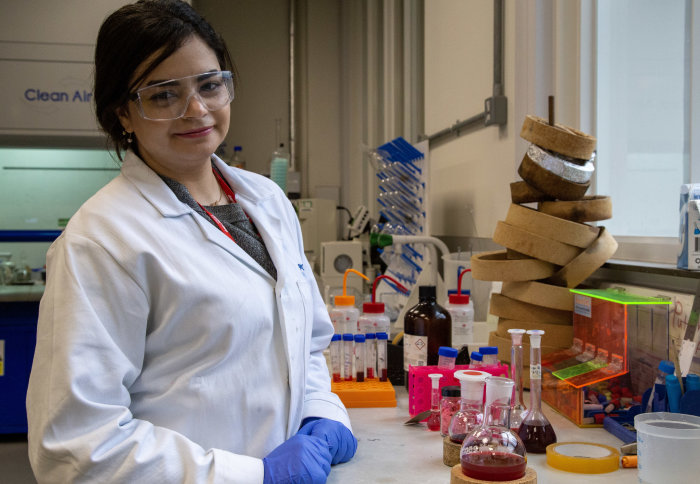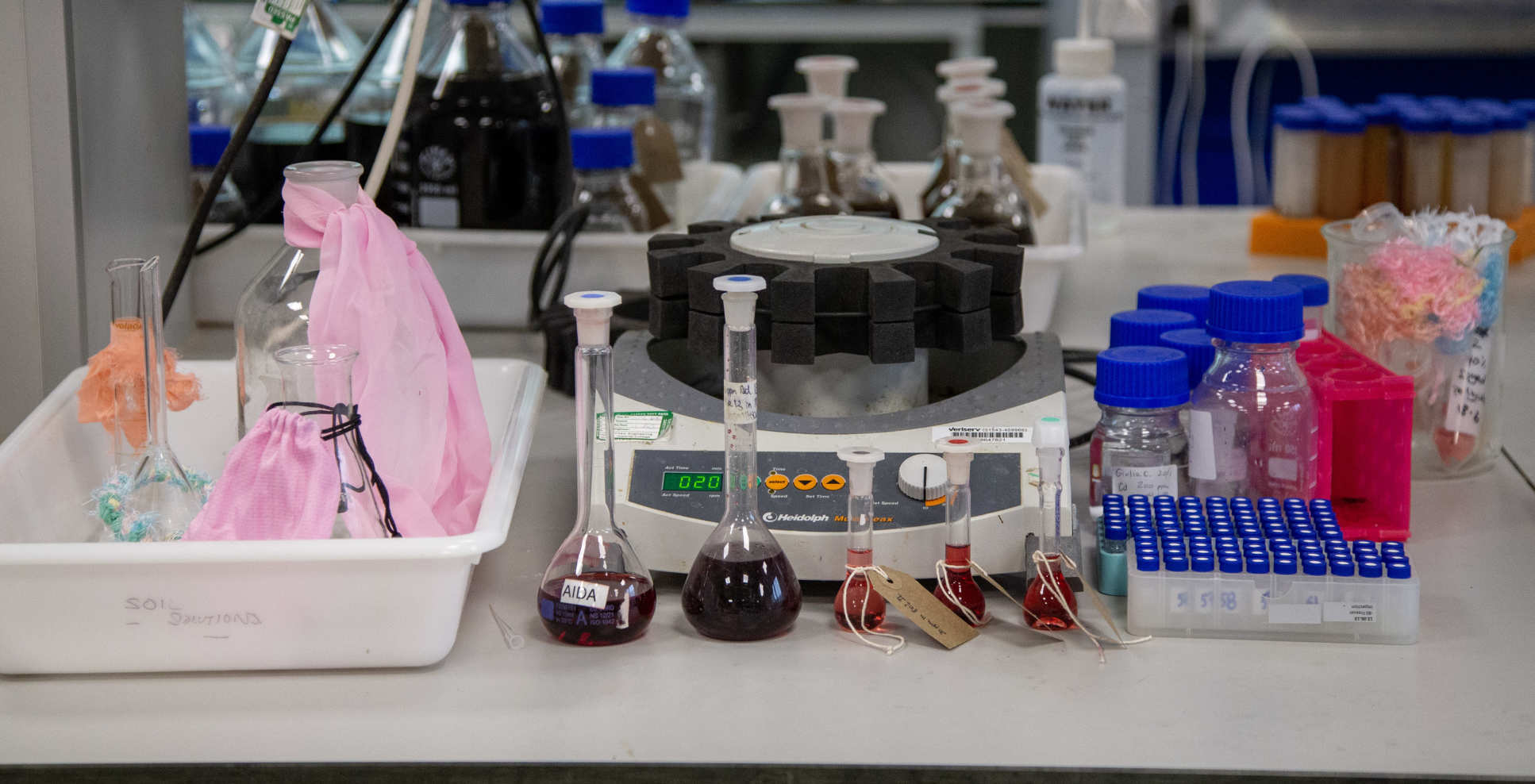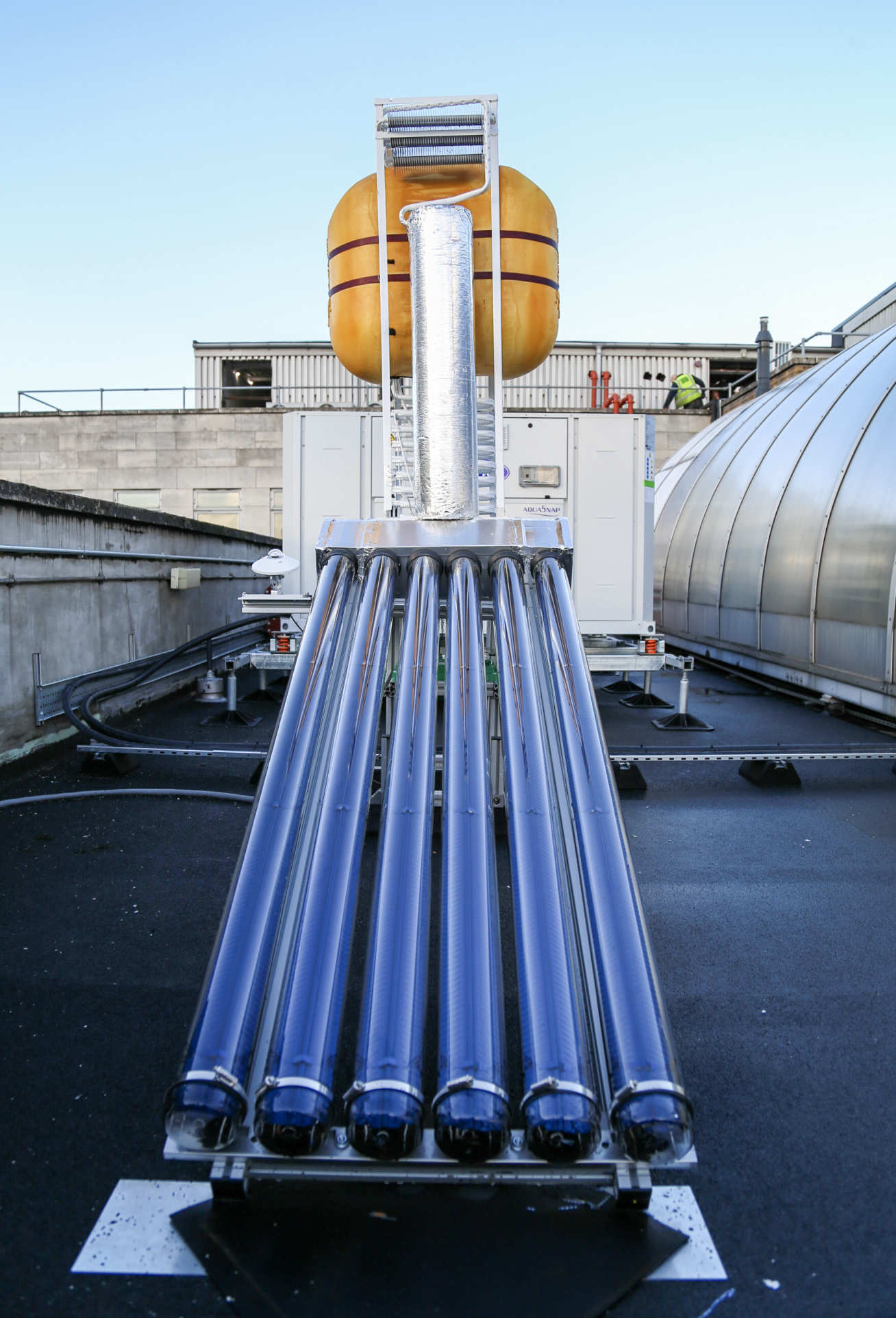Imperial student wins global engineering competition with sustainable technology
by Sara West

Competition winner Aida Rafat, Department of Chemical Engineering
Chemical Engineering PhD candidate is named winner of the World Engineering Day Young Engineers competition.
Final year PhD student Aida Rafat has won the Young Engineers competition, part of the inaugural World Engineering Day Celebrations, for her innovative technology that extracts dyes and colours from textile waste and recycles it to dye new materials.
The competition was organised by the World Federation of Engineering Organisations’ (WFEO) Young Engineers/Future Leaders Committee in collaboration with Engineering Futures, a global group of young engineers.
Engineers under the age of 35 were invited to enter a submission on how their work was meeting one of the United Nations 17 Sustainable Development Goals. These goals are a call to action for all countries to work in partnership to end poverty, improve health and education, reduce inequalities and support economic growth, while at the same time tackling climate change.
More than 400 entries were submitted from 70 countries around the world and judged on the basis of their impact on one or more of the Sustainable Development Goals, and the leadership and contribution of the author and the level of innovation in addressing the underlying problem.
Sustainable dye alternative
Aida’s winning entry was for her work on Dyerecycle, the process she has developed to address textile waste in the fashion industry. Her work contributes to achieving Sustainable Development Goal 12, Responsible Consumption and Production, by addressing the issue of overproduction and overconsumption in the textile industry. This contributes to Goal 13, Climate Action, by diverting textile waste from landfill and incineration while providing a more sustainable dyeing technology alternative.
Dyerecycle extracts dyes and colours from textile waste and uses it to dye new garments and fabrics. The extracted dyes and robust and the shades and colours in the subsequent dyeing process can be carefully controlled and applied to a range of textures.
"The technology has great potential to change the way fabrics are dyed and coloured in the future and is a significant innovation that addresses the goals of sustainable development." Aida Rafat Department of Chemical Engineering
It is estimated that the UK produces 800,000 tonnes of clothing waster per year in the design phase alone. Waste is also produced when unsold garments are sent to landfill and when consumer throw away unwanted clothes. Dyerecycle provides an option which diverts textile waste from the landfill or incineration and provides an alternative dyeing method which uses less water and other raw materials.
Aida said: “There is huge demand for innovation and circular technologies that tackle the entire supply chain of the textile industry, from waterways pollution, to the overwhelming textile waste that currently goes to landfill. The technology has great potential to change the way fabrics are dyed and coloured in the future and is a significant innovation that addresses the goals of sustainable development”.

Aida completed her Bachelor’s and Master’s degrees at Qatar University before joining Imperial College London in 2016. She has previously worked with ConocoPhillips and Chrysalix Technology, now Lixea Limited.
Chemical Engineering runner-up
Ahmad Najjaran from the Clean Energy Processes (CEP) Lab in the Department of Chemical Engineering was selected as one of the top ten overall entries in the Young Engineers competition for his research into affordable net-zero emission decentralised cooling.
His work involves the development of cooling technologies using renewable energy sources, with a focus on areas that don’t currently have access to electricity. Ahmad is experimenting with diffusion absorption refrigeration (DAR) technology and exploring solutions to enable it to operate at lower temperatures heat sources.

DAR systems are a promising solution that offers net-zero emission decentralised cooling at a very low investment and operating cost and with long lifetimes.For these reasons they can be instrumental to rural and off-grid communities in delivering cooling, thereby increasing the quality of life, protecting crop spoilage and preserving medicines.
The research and development currently being done in CEP Lab on the next-generation of DAR systems aims to bring this technology to the stage of commercialisation and mass production, and ultimately to the position where it can make a real difference in addressing current global energy, water and environmental challenges, contributing to Sustainable Development Goals 7, Affordable and Clean Energy, and 11, Sustainable Cities and Communities.
Ahmad was awarded the Islamic Development Bank merit scholarship in energy field in 2016 to join Imperial College London to complete his PhD in the heat and power division under the supervision of Professor Christos N. Markides. His PhD is focused on Diffusion Absorption Refrigeration (DAR) systems for thermally-driven cooling from low-temperature heat sources and compared the technology with other conventional cooling systems.
Before joining Imperial College London, Ahmad obtained his MSc and BSc degrees in Mechanical Engineering at the Islamic Azad University-Shiraz. During his study in Shiraz, he conducted research into frost embryos nucleation and human body heat transfer.
Article text (excluding photos or graphics) © Imperial College London.
Photos and graphics subject to third party copyright used with permission or © Imperial College London.
Reporter
Sara West
Communications Division